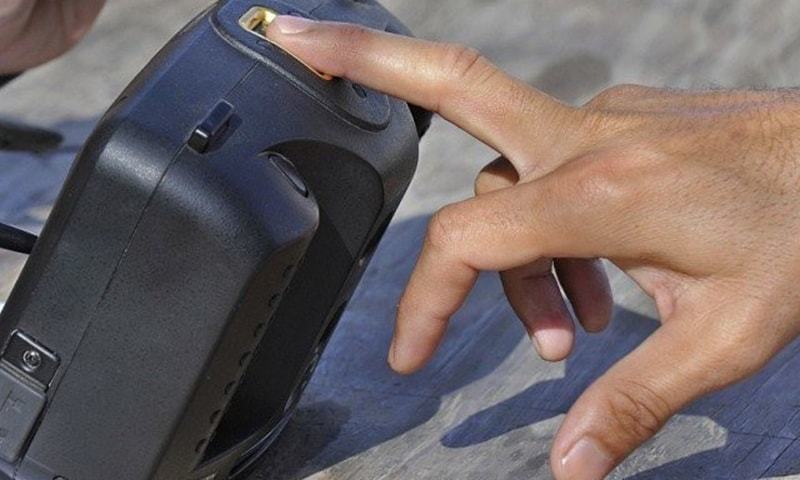LAHORE: All police stations in Punjab are being given biometric machines to check whereabouts of people not possessing their Computerised National Identity Cards (CNICs) within no time, quickly detecting those having doubtful credentials and saving the law-abiding citizens from proving their identity in police stations.
According to official sources, the government had through the Punjab Information Technology Board already purchased 1,000 biometric machines and they were being tested for their accuracy at the Gaddafi Stadium hosting Pakistan-Zimbabwe matches these days.
Sources said the machines would be given to all police stations for checking the identity of people not possessing their CNICs at pickets and during combing operations. Each police station would get one machine, helping it identify any person within no time.
The machines are linked to the Nadra network. The identity of people having CNICs but not possessing them at the time of checking, could be confirmed by asking them place their thumbs on the machines. Those having personal details at the Nadra network would be identified, and those not would be questioned, sources said.
“This is a decent, modern and accurate system of identifying people all over the world. This will help a great deal in saving law-abiding people from the normal police style of separating who is innocent or who is not,” an official said.
He said the machines would be given to police after their training. Right now they were being tested at the Gaddafi Stadium and so far they were functioning perfectly.
Meanwhile, sources in the home department said that the chief minister had constituted a committee to revisit draft of a new law about strictly regulating marriage functions.
They said originally the new law was drafted to make violations of the restrictions on marriage functions cognisable by police. But the draft made it mandatory for the DCOs to nominate officials for leading police so that they could not harass anyone.
Sources said that there was no mention of banning one dish at weddings as this would invite opposition from caterers, owners of marriage halls and meat sellers.
Published in Dawn, May 25th, 2015
On a mobile phone? Get the Dawn Mobile App: Apple Store | Google Play













































